Issue 50: Reset your Social Media Annually
On the controlled burn of online profiles

Part I: Reset Your Social Media Annually (you are here)
Part II: Your Art or Your Life
ft. Quo-Host
Dear Reader,
Food For Thought
You should delete your social media profiles, once a year or so.
If this suggestion shocks or angers you, pause for a moment and sit with this feeling – this is a great opportunity to reflect on your relationship with social media.
This annual deletion is not an argument to step away permanently. You might not quit, in fact, you might make a new profile, with the same handle, the same day. The goal is to reset your humors and to remind yourself why you joined "platform of choice" in the first place.
My rule of thumb is that if it takes less than five minutes to set up a new account and make your first post, you should reset the profile once it reaches a certain saturation point. This saturation point varies from platform to platform. Often, it doesn't have a quantified metric. Often, it will be a feeling. A curl of your upper lip in disgust every time your fingers automatically type the URL, knowing that you'll be spending the next 45 minutes doom scrolling. An anxiety every time your phone dings. An urge to get your heart rate up by arguing with strangers. Once you've reached this saturation point, I have bad news for you. It will never desaturate, there is no pressure valve except one. The reset button.
This argument has many faces. Let's go over the most grotesque masks, starting with the dead weight, the status quo.
Status Quo I: Middle Management
One of the most pernicious dangers of the saturation point is adherence to a status quo that is, upon a millisecond of reflection, a sunk cost. Recently, I got into it with some forum mods about some really stupid thing. As a rule of thumb, forum mods are glorified hallway monitors from middle school, or ass-kissers. The hallway monitor, if you'll remember, was a student, who thought of themself as being different or better than the other students, solely by their ability to tattle really well to the adults. Never once did they hold actual power, they were permanently stuck as the henchmen of those who did wield power. As such, these people were generally disliked by their peers.
The internet is filled with mods. Twitch mods, Discord mods, forum mods. People who, by virtue of being terminally online in a particular community, derive the conclusion that indeed, they have a right to say big words, and make big threats, because you are in their domain (quite literally you are in their www domain!). And without even getting paid! Wow!
People who are, in the words of Erik Dietrich:
Yesterday, we had owners and grunts. Today, we have owners, grunts, and a new thing: managers. Only owners have any legal power as far as the company is concerned, which makes managers and grunts the same thing. The main difference is that, at the pleasure of the owners with the real power, managers can tell grunts what to do.
-- Developer Hegemony: The Future of Labor (affiliate link)
To reset your presence on communities is a reminder of your relation to the community itself. Don't become a mod, and if you do, don't act like one, maybe?
Status Quo II: Verification
The second element of status quo is your importance within the community, as bestowed by a badge from the platform that signifies your "influence" in the community. Yep, it's influencer time.
Imagine right after posting this issue, I release an app called GluppyFlippy. On GluppyFlippy you can post images of the dumbest thing you can imagine, let's say pictures of ironing boards in motels. This excites you because as it so happens you travel a lot for work. You find yourself posting a lot, and liking other people's posts about ironing boards, maybe even leaving the odd review about how many coffee stains are on ironing boards in Tulsa vs those in Boise. It's fun because the community is small, and you and your friends finally have a place to discuss all your clothing care needs and how to remove wrinkles.
By some horrific moment of tulip mania, GluppyFlippy becomes popular. Really popular. Like, really. fucking. popular. Millions of users flood into GluppyFlippy, everyone quickly making their own profiles and claiming their handles as fiefdom, and they quickly set off to reshape the meta by posting those handheld steamers as well and beginning to optimize what they can post and at what time to chase the all mighty algorithm.
By your combination of luck, timing and skill, a lot of these new people find their way to your profile and begin liking your pictures. Perhaps thousands! As the platform owner (I built the thing after all!), I see this in my server logs and decide to put a golden iron icon next to your name. This, for me, adds to the legitimacy of my service, since it looks from the outside that I have users who are celebrity creators. It also legitimizes my reasoning to serve more ads on your page, because you are no longer a user, no, you are a brand. And brands need ads.
To add this golden iron icon took me, like, 10 seconds to create an SVG in Photoshop? Maybe? And yet, all of a sudden, all the other GluppyFlippy users want to be you. Ex-lovers are reaching out, motels are trying to sign million dollar deals with you, hell, you might even land a spot on local TV news.
Over time, you begin to notice that this persistent attention has its downsides. People DM you constantly about how you got the golden iron. They beg you to follow their GluppyFlippy profile, to like their post about them surfing the iron board down the stairs in their hotel room in Maui, or at the very least, to collab with them.
You wake up in cold sweats to the voices in your head whispering, "Come on bro, collab."
This sounds ridiculous, right? But go back to the beginning and replace GluppyFlippy with TikTok/Instagram Reels/Threads (blue checkmark) or LinkedIn (brand voice) or Twitter (blue checkmark) or YouTube (gray checkmark) or any other social media where the platform can bestow a <span> next to your username, and let you play God.
To reset your presence is to free yourself from platform signifiers, to reset your peace of mind. The goal is to say what you want to say, not say what will make your audience stick around for your next video about the finer points of ironing pleated pants.
P.S. What's up with all the checkmarks, anyway?
Friends
This one, along with craft (below), is likely the only one that actually matters. Friendships are integral to a healthy life, and you can make really good friends online, in fact I've written about it extensively in issue #34 (a really good read, imo!). It can be annoying for your friends to re-follow you once a year, but I've found that those I'm close to have no qualms with it. Those that do, really don't see your friendship as something they value if they can't take the three seconds to hit the "follow" button. Fair weather friends, much?
Social media platforms are dependent on FOMO to continue existing, for without engagement, they cease to exist! They derive value from network effects after all. If you and your friends care about one another, foster that local network. Care for your garden.
Get off the platform. Grab a cup of coffee. Go play basketball or chess together.
Craft
I'm discussing craft last because of all of the arguments, this is the most important. Outside of social media made purely for friends to communicate with one another, you likely joined a social media as an interest group, or to pursue an ambition or an identity. You may be really really into books or knitting or some other hobby and you want to share your learnings with the world. You should be rewarded for that!
One of the largest problems with social media platforms is they edit your voice to fit their goals. You may not notice it, it may be that you pick up a jargon phrase here or there that your real life friends and family make a confused face out you when you say "poggers" or "its giving" in public, or perhaps you develop anxiety of the post button, afraid of what people might say about you and your work – so you never post unless you think it will get a lot of likes. The metrics of quality as derived by social media are firmly lodged in how important any conversation is at any moment, to be quickly replaced by the news of tomorrow, the latest upset, LSF drama, or cancellation.
I occasionally visit Substack, and I very much move in circles where people own Substacks and a friend of mine asked why I prefer Ghost to Substack. The conversation is as follows:

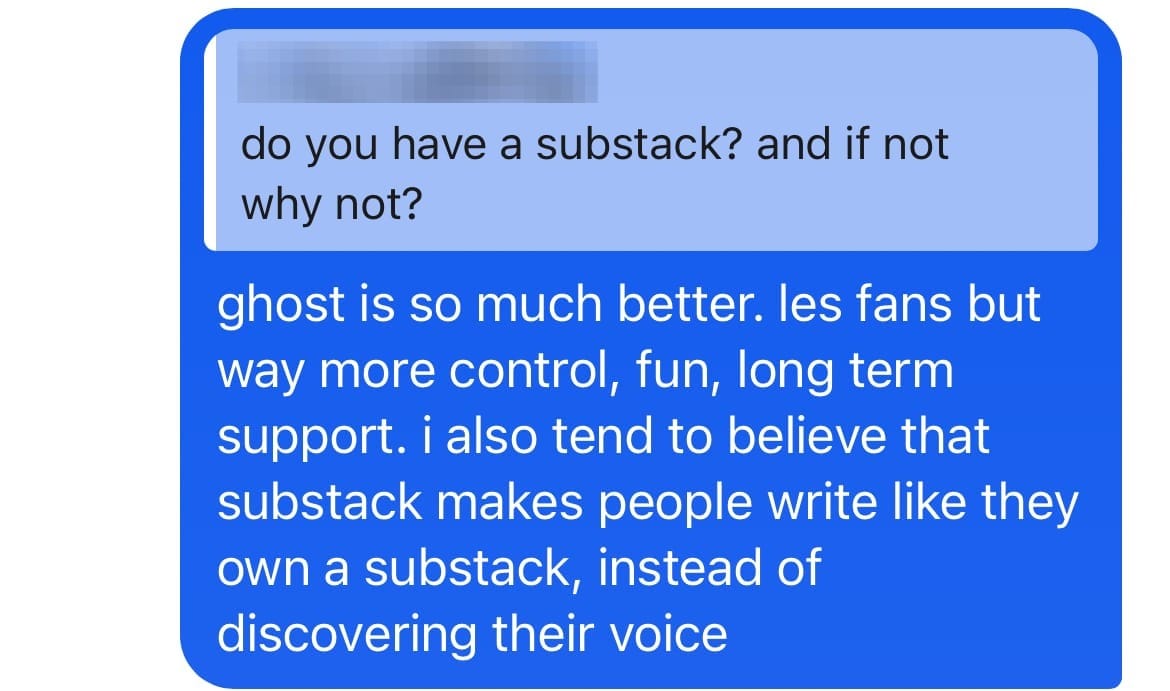
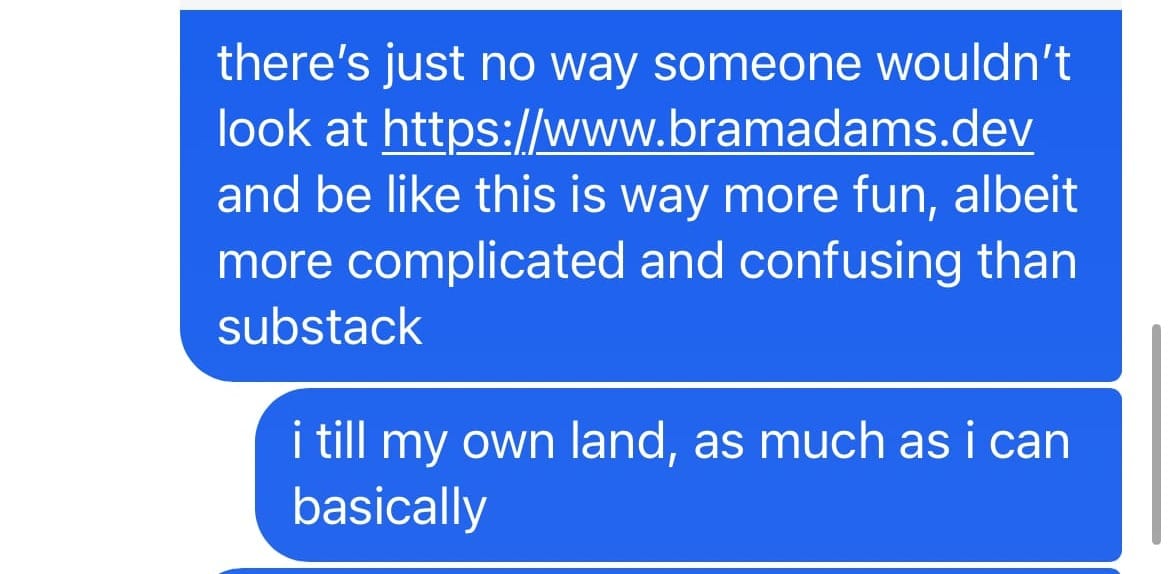

The goal is to let creativity flourish, not to stifle it.
NB: Listen to this whole interview with Donald Glover, but particulary the part about the "Shit Girls Say" trend from 2011.
To paraphrase from issue #41:
Much more importantly, bramadams.dev has served as the perfect playground for my creative desires. In between poetry, short stories, image dumps, long thoughtpiece essays, shitposts, zettels (a zettelkasten note, singular), creative coding, tutorials, newsletters, and more, I have never felt more free as a creative than on my own site.
(excuse my language here, but) Fuck websites that tell you your creativity is constrained to 280 characters. Fuck websites that tell you that you can only upload photos in a certain dimension to fit the rest of the site's CSS. Fuck websites that use their networks of likes and comments to change how you think, speak, and create. Fuck sub splits with the website owner because you happen to be renting a handle on their platform. Fuck the narrative you can't grow an audience because Twitbooktube has hoovered up all the curious minds on the Internet and trapped them in their feeds to scroll forever. FUCK ALLLL THAT.
A Practical Guide to Resetting Your Presence Online
Let's wrap up this philosophy with some actionable items. I've gone through these controlled burnings more than once, and here's how I go about it:
A primer how to successfully reset your account:
1) ~A month to a week before you take any action, write down your reasoning for your reset, and your relationship with social media. This is critical to success as you will return to it later.
2) ~A week before your deletion, download all your data from your social media. You'll want to revisit your work for memories sake as years go on. Save it into a Dropbox, or a local drive. But ideally the cloud, so you don't lose it.
3) Come up with a list of people you want to re add or follow. If they are your friends, message them and mention that you're remaking your account. If you are simply following your favorite content creators, no worries, just follow them again.
4) Do not tell everyone or make a big social stink about it, no one cares, and it makes you look needy. You are a person. Deleting your social media profile on GluppyFlippy / Instagram / TikTok / Substack will not make you less of a human.
5) Do not fear. I’ve done this multiple times with no effects other than clarity of mind and freedom to post things i normally wouldn’t. It's great for experimenting, and you learn something new each time!
6) Make a choice. Are you leaving social media for good, or staying? If you're staying, remake an account. As stated above, these platforms that run off network effects desperately want users, so it should take less than 5 minutes. Or if you've been meaning to leave for good, take this time to come up with a replacement hobby you've been looking forward to but haven't done because of social media. Maybe you can go to that restaurant you've wanted to try, or watch really good movies or read some really good bvooks. The sky is the limit!
Resetting your profile is a healthy practice in righting power imbalances between you and social media. Words on the internet can live forever, and are also gone in an instant. It's a paradox, but it is indeed the case. So we must live with it, and ideally, embrace it.
In my mind, there is only one profile that has enough escape velocity to not get marred in the local maxima of social media profile saturation. But we'll discuss that... next week 😎.
On My Nightstand - What I'm Reading
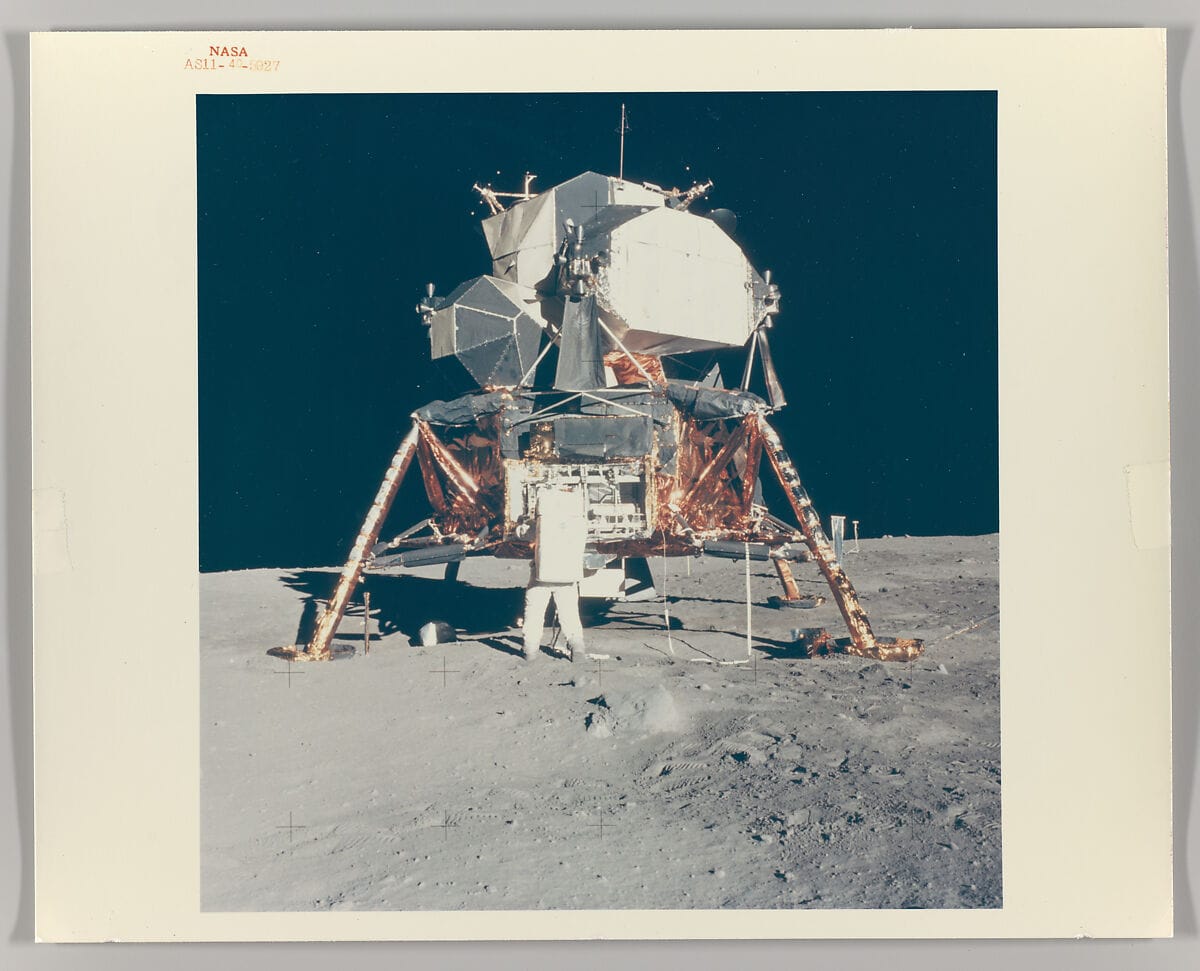
An interesting look into the overlap between biology and computation. A really good book about science, especially if you like scientists making bold conjectures and backing them up. It would likely feel similar to have lived in 1895 and read Darwin's natural selection theory.
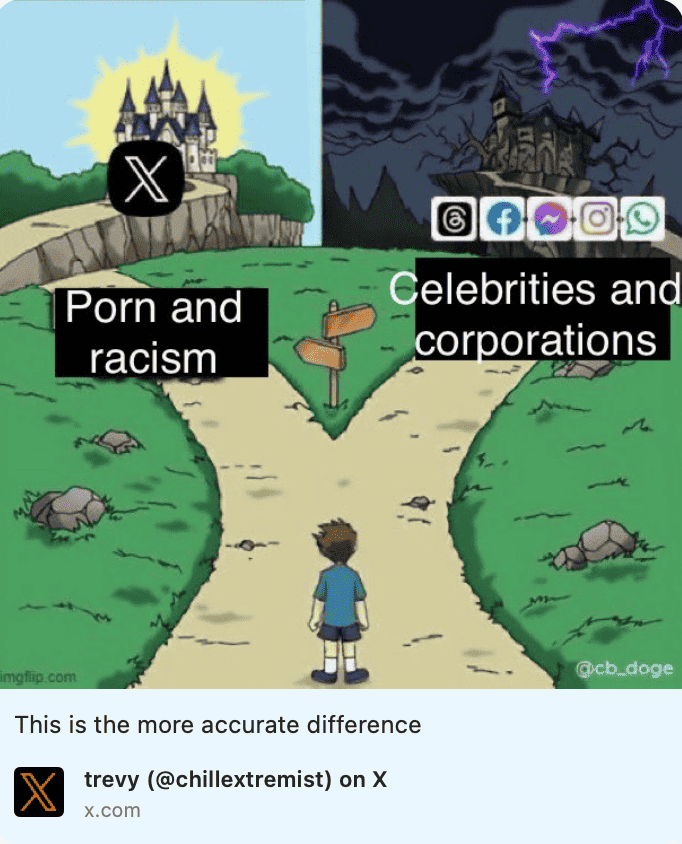
Ye Olde Newsstand - Weekly Updates

I'm finally getting around to podcasting. A ~year worth of newsletters taught me consistency, now the site needs an audio/video pillar
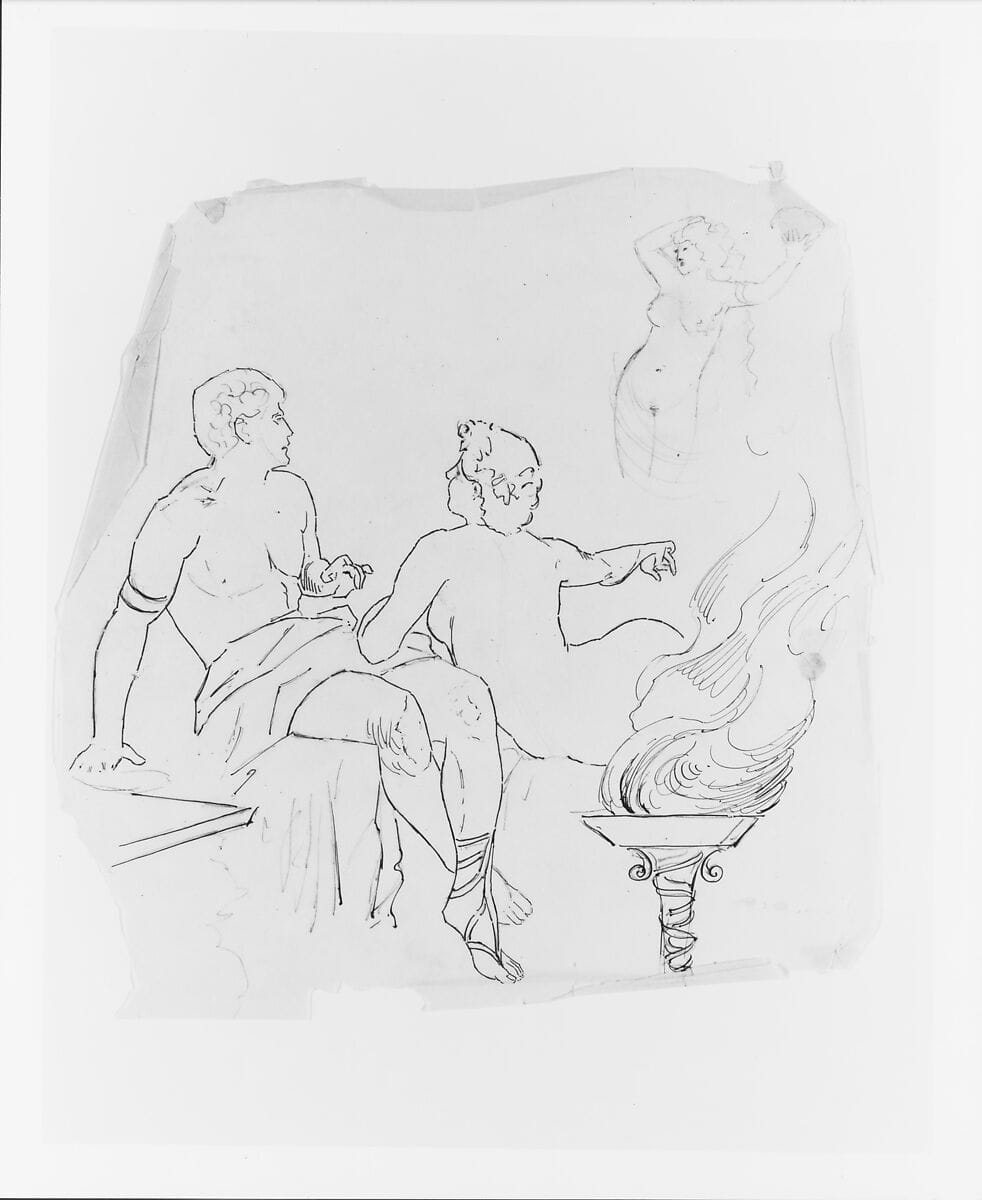
Media dump, all Hearthstone and no reading makes Brammy a dull boy
Thanks for reading, and see you next Sunday!
ars longa, vita brevis,
Bram





